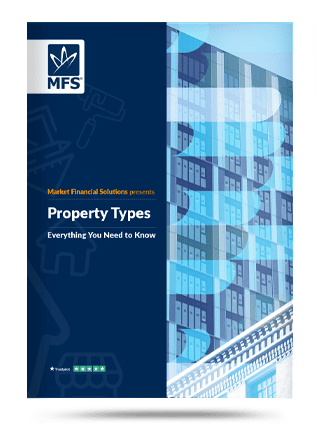Disclaimer
Market Financial Solutions are a bridging loan and buy-to-let mortgage provider, not financial advisors. Therefore, Investors are encouraged to seek professional advice. The information in this content is correct at time of writing.

We likely all have an image of what the typical homeowner looks like. But, there are multiple elements that go into the question of who are British home buyers.
What is the average profile of the UK homeowner/buyer? Do they have a preferred property type, and what about by constituency? Are there more homeowners in the North West of England over the South East?
Then there’s the investment side of things. How many landlords are there, and how much of the UK housing stock is owned by overseas buyers?
We’ll explore the answers to some of these questions in this blog. Meanwhile, we’ll also look at who is least likely to own a home in the UK, and what the outlook is like for the coming years.
Who are British home buyers – a profile
In England, 35.6% of all homeowners are aged 65 or over, according to Statista. Those aged between 55-64 own 19.6%, followed by 45-54 (19%), 35-44 (15.2%), 25-34 (10.1%), and 16-24 (0.5%).
Across England and Wales, around 62% of households were homeowners, according to the 2021 census. The latest English Housing Survey (EHS) also revealed that mortgagors had the highest average household size in 2022/23 of 2.7 persons. For outright owners, it lowers to 1.8 persons.
Across Britain’s constituencies, Sefton Central in the North West has the highest percentage of homeowners at 82.8%. In fact, the Midlands and the North dominate the top 5 spots of this leaderboard. After Sefton Central, Cheadle (81.8%), Rayleigh and Wickford (81.7%), Wyre and Preston North (80.2%), and Haltemprice and Howden (80.1%) make up the remaining spots.
Most of these homeowners will likely be living in a house. In England and Wales, 77.9% of households lived in a house or bungalow, according to the census. Some 21.7% lived in a flat, maisonette or apartment, and 0.4% lived in a caravan, or other mobile or temporary structure.
In 2022/23, the average (mean) age of first time buyers in England was 34 years. In London, the average was 35 and outside the capital, it dropped to 33 years of age.
Property investors
Private homeowners are only one segment of who British home buyers are. While it’s difficult to get an exact figure for how many property investors operate in the UK, we know that the private rented sector accounted for 4.6 million, or 19% of English households in 2022/23.
The number of unincorporated landlords rose to 2.82 million in 2021/22 according to HMRC, while a record 50,000 landlords set up buy-to-let companies in 2023.
Overseas investors also continue to show great interest in the British property market. In mid-2023, it was revealed that an estimated £84.2 billion worth of property across England and Wales was owned by foreign homeowners. According to Benham and Reeves, most of these buyers come from Hong Kong, Singapore, and the US.

Who are least likely to be British home buyers?
Generally, given the state of the modern economy, it’s the younger generations who are least likely to own a home. Millennials spent £36.9bn on rent in 2023, reversing trends seen between 2016 and 2020 when more of this demographic became home buyers. Also, around 36% of renters are generation Z – those born between 1995 and 2012.
As these young people are forced to dedicate more of their income to rent, they’re less likely to be able to save enough for a deposit for a home. In 2023, as much as £85 billion was put towards rental payments across the UK and according to Leeds Building Society, home ownership has fallen by a third among young people.
In fact, this has become such a widespread phenomenon that a new term has emerged for these youngsters. Generally, anyone born after the late 1980s are being labelled as “guppies” – those who are giving up on owning property and spend a lot of time living with their parents.
The coming years
Looking ahead, it may prove even more difficult to get on the housing ladder over the coming years. Residential sales price growth is set to rise consistently from 2025 into 2028, with a small decline in 2024 according to JLL.
What’s more, the Office of Budget Responsibility excepts the barriers to homeownership are set to increase, potentially locking out thousands of people, particularly first-time buyers. But, hope may be on the horizon for the next generation of buyers.
Over the coming decade, a “great wealth transfer” is expected to take place. As much as £5.5 trillion in financial assets could be passed on from baby boomers to millennials and gen Z. As this wealth is handed down, it may end up being put to use for new property purchases.
Also, both the Conservatives and Labour are focusing more efforts and resources on delivering more stock to the market. Should this come to fruition, prices may drop as supply rises.
Regardless of what the profile looks like for future home buyers, Market Financial Solutions will be able to serve those looking for investment properties. Across our products, we can deliver funding to applicants aged between 21 and 85. We’re able to work with individuals, companies, foreign nationals and more, so long as they’re investing in English or Welsh property.
As the economy and its key players wrestle with the challenges of getting more people involved in the property market, we’ll be there for those who emerge at the other end. Regardless of who are British home buyers, we will aim to support them.

The Complete Guide to
Property Types
Everything you need to know
- Residential property types
- Commercial property types
- Property types by ownership
- Property types by investment goal
- Regional variations & more




